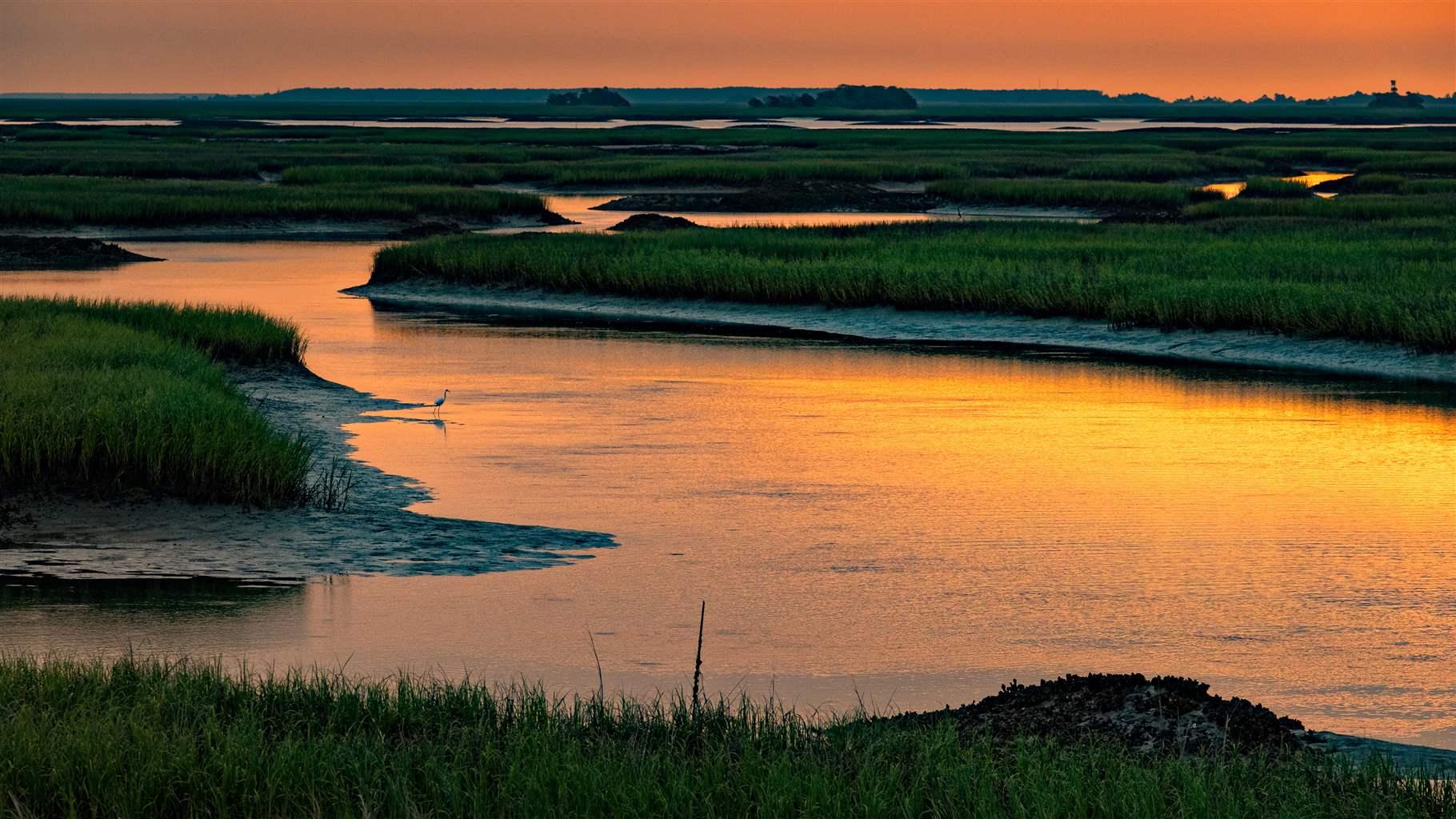Writer Delia Owens Discusses the Need to Conserve Salt Marsh
Author of 'Where the Crawdads Sing' on why she supports a new South Atlantic initiative to protect this vital coastal habitat

Delia Owens knows a lot about salt marsh from her time spent studying zoology at the University of Georgia and her experience living in North Carolina. And she’s incorporated salt marsh as a central element in her writing, showcasing these vibrant and abundant coastal wetlands that provide essential habitat for birds, fish, and other wildlife.
Recently, The Pew Charitable Trusts spoke with Owens about why she is backing the South Atlantic Salt Marsh Initiative. This new effort began in May and brings together government officials, military representatives, and community leaders who recognize the marsh’s ability to filter runoff, reduce erosion, and help protect shorelines against flooding and storm surge. The initiative aims to conserve about a million acres of marsh stretching from North Carolina to north Florida and to help communities and the military—every branch has at least one installation in the target area—better prepare for the future through coordinated transportation and development plans, targeted restoration projects, and conservation of lands adjacent to marsh to allow the tidal wetlands to move as sea levels rise.
This interview has been edited for clarity and length.
Q: Salt marsh conservation is one subtext of your novel. What message do you want readers to take away?
A: I never use the word “conservation” in the book, but because the reader experiences the marsh with its wide array of habitats—lush oak forests, lagoons, estuaries, sweeping grasslands, sandy beaches—inhabited by startling colorful birds, white-tailed deer, bears and turtles, the message is clear: This expansive and diverse ecosystem supports a kaleidoscope of life, including our own, and must be protected.
Q: What’s your favorite personal experience with salt marsh?
A: When I was earning my undergraduate degree in zoology at the University of Georgia, my protozoology class took a field trip to Sapelo Island and camped on the beach. This was years ago, before organized visits, and we were allowed to explore, boat, and camp as we studied the vast habitats. We took an old shrimp boat into the sea and collected protozoans. Later we set up microscopes in the old barn and identified the specimens. To be free and in the wild are two of my favorite things.
Q: Why should people care about salt marsh?
A: Many species of marine organisms—including those that humans consume for food—spend at least part of their life cycles in the saltwater marsh. Also, the marshes serve as essential buffers, protecting the land from severe storms, flooding, erosion of beaches, and rising sea levels. Most of these issues are going to present extreme difficulties for our species and many others with the onslaught of climate change. Humans stand to lose as much as any other species if we don’t protect the marshes and take immediate steps to curb climate change.
Q: What do you see as the biggest threats to marsh in the Southeast?
A: The biggest are unsustainable development—from hotels and housing to roads—and draining marshes, deforestation, pollution, and human-induced climate change. The loss of the saltwater marsh is a big problem and needs a big solution.
Q: What do you hope for the new South Atlantic Salt Marsh Initiative?
A: The vast scope of the South Atlantic Salt Marsh Initiative is so exciting. This program has a “Let’s just do it” attitude, and I hope many people support it locally and nationally. Freshwater marshes are also essential habitats, and I hope some of the conservation efforts for the saltwater marshes will spill over to that ecosystem and other ecosystems. The marshes need action, not talk or promises.








